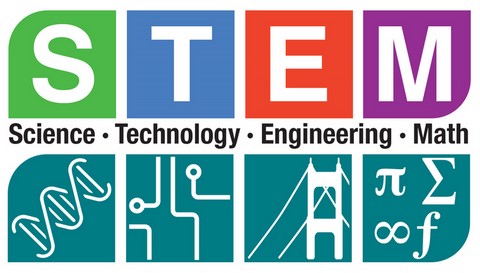STEM : A Step For the 21st Century Education
Preparation:
Course organizers will send to the participants list of materials related to the course topic they can read in order to prepare for the course. Organizers will assist the participants if they need information related to the accommodation, flight tickets or any detail necessary in organizing the course.
Course description
STEM is an acronym consisting of the initials of the words Science, Technology, Engineering, and Mathematics. Basically, it is a teaching strategy that envisages the training of different branches by an interdisciplinary method rather than a separate one. With the combined use of different disciplines, this program aims to prepare the project, execute the project, solve the problems encountered in the process and produce the product. With a permanent education method provided by STEM education in the schools, students will be trained as individuals who can solve their problems, self-confidence and use their theoretical education in real life.
Methodology:
- Ice – Breaking and Warm – Up Sessions
- Energisers
- E – Learning Platforms
- Group Discussions
- Problem – Solving Activities
- Project – Solving Activities
- Questioning
- Goal – Setting sessions
- Brainstorming
- Planning an Structuring
- Case Study
- Problem solving
- Questionnaires
Objectives
- Understanding the importance of different interdisciplinary education
- Using project-based learning in the classroom
- Integrating new technologies into the classroom
- Providing permanent learning while enhancing academic performance
- Lesson planning based on STEM
- Project-based lesson design
- Ability to make 3D modeling
- Algorithm and flow diagram preparation
- Basic coding knowledge
- Use of robotic exercises in class
- Use of your increased reality in class
- Web 2.0 tools that can be used for class
- Assessment tools that can be used in class
Follow-up
Trainees will be given soft and hard copies of all lesson materials, which they presenting to their colleagues at their own organizations to generate interest in 21st-century teaching methods with creative thinking. In addition, a mailing list of participants will be created in order to exchange ideas/experiences. Self-evaluation materials will be provided. At the end of the course, the participants will accomplish a questionnaire in order to get detailed feedback for the effectiveness of the training event.
Programme of training activities day-by-day:
Day 1 – MONDAY
- Welcome and registration
- What is STEM?
- Why We Should Use STEM
- Project Based Learning
- Project Based Lesson Planning
- What is Inquiry Based Learning?
- Inquiry Based Lesson Planning
- What is Modeling
- Modeling Applications
- 3D Model Preparation
- Preparing for 3D Printing
Day 3 – WENDESDAY
- What is Algorithm
- What is Flow Diagram
- Problem solving techniques
- Why We Should Learn Algorithm
- Sample Algorithm Preparation
- Using Algorithm in the Class
Day 4 – THURSDAY
- How to Write Code
- Programming with Blocks
- Program Algorithm Conversion
- Give motion to object
- Simple Educational Game Design
Day 5 – FRIDAY
- What is Robotic
- What is Arduino
- Introduction of Basic Materials for Robotics
- Robot Programming
- Sample Project Development
- Robotic use in lessons
Days 6/7 – SATURDAY and SUNDAY Workshops and Cultural/Sightseeing Activities
Day 8 – Monday
- What is Agumented Reality (AR)?
- Increased Reality Implementation
- Designing Increased Reality
- Use of AR in Lessons
- Sample Course Design
- Effective Presentation Techniques
Day 9 – Tuesday
- Web 2.0 Tools
- Use of Web 2.0 Tools in Lessons
- Assessment Tools
- Use of Assessment Tools in Education
Day 10 – Wednesday
- Workshop
- Feedback, Course Evaluation and Dissemination Focus





